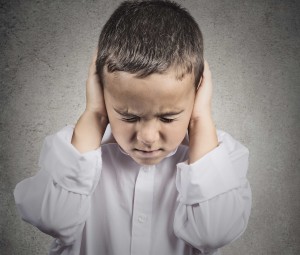“We worry about what a child will become tomorrow, yet we forget that he is someone today .” ~Stacia Tauscher
 Parents sometimes wonder if their child is naturally exuberant, and non-compliant, or if these are symptoms of ADD (Attention Deficit Disorder) or ADHD (Attention Deficit Hyperactivity Disorder).
Parents sometimes wonder if their child is naturally exuberant, and non-compliant, or if these are symptoms of ADD (Attention Deficit Disorder) or ADHD (Attention Deficit Hyperactivity Disorder).
The three primary characteristics of ADD/ADHD are impulsivity, inattention and hyperactivity. The signs and symptoms a child with ADD / ADHD has depends on which characteristics predominate. Children with ADD / ADHD may be: inattentive, but not hyperactive or impulsive, hyperactive and impulsive, but able to pay attention, inattentive, hyperactive, and impulsive (the most common form of ADHD).
Children with the inattentive form of ADD may be overlooked because they are not disruptive. It may be assumed they are simply “not behaving,” This child may not pay attention to details or make careless mistakes, have trouble staying focused; be easily distracted, appear not to listen when spoken to, have difficulty remembering things and following instructions, have trouble staying organized, planning ahead, and finishing projects, and may frequently lose or misplace homework, books, toys, or other items.
Most of us at one time or another have seen these behaviors in our children even though they do not have ADD/ADHD. So how is a parent to discern what is going on with their child?
The professional criteria for a diagnosis of ADD / ADHD requires the following: early onset – symptoms must have been present before age 7, duration – a combination of symptoms must have been present for at least 6 months, settings – the symptoms must be present in two or more settings, such as home, school, and other social settings, impact – the symptoms must have a negative impact on the individual’s school, family, and/or social life, developmental level – the symptoms are not due to the child’s normal developmental level, alternative explanation – the symptoms are not caused by another physical, mental or emotional disorder.
If you suspect your child may have ADD/ADHD, the first step is to consult with your family physician or pediatrician. These children often draw a lot of reprimands and criticism, which is unfair if they really cannot help themselves.
Copyright © Gwen Randall-Young, All Rights Reserved. Contact us if you would like permission to reprint.
CDs You May be Interested In:
Thinking for Yourself (Empowerment for Youth)
Releasing Anger
My Special Friends (for Young Children)
Conflict Resolution in Relationships
Releasing Anxiety






